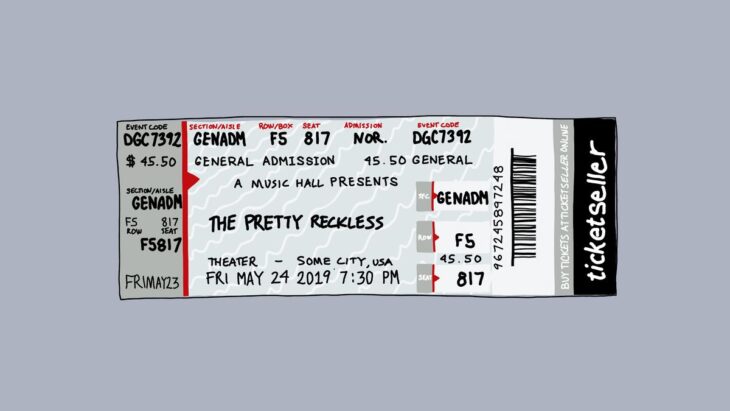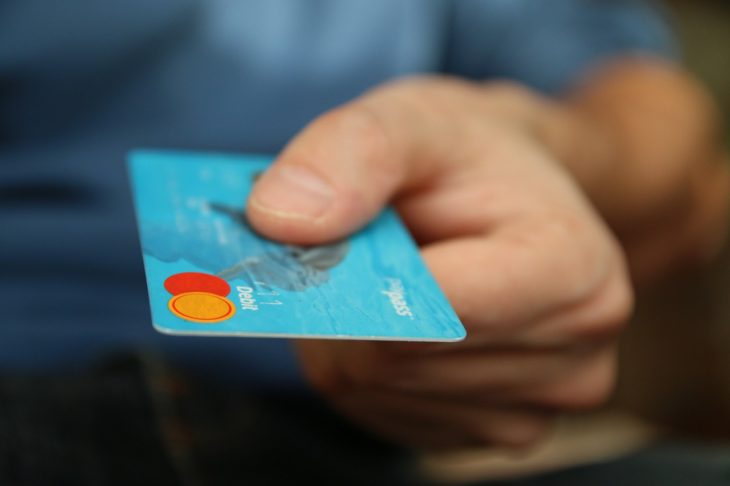When a large event, such as a popular concert or a sporting event, is on the horizon, you can bet scammers will be rubbing their hands with delight at the opportunity to make a few pennies. This is likely to have been less of an issue in the last year, as the coronavirus epidemic forced the cancellation of a slew of popular events.
Scammers create bogus websites that give you the chance to get tickets to a big event that is already sold out or hasn’t officially gone on sale yet. You pay for the tickets with cash, but they don’t show up. It’s also possible that you’ll be sent bogus tickets, and you’ll only realize you’ve been fooled when you try to get in.
So, how can you keep yourself safe?

Source: vox.com
Contents
Check if the ticket for the concert site is safe
The first security check you should perform the next time you visit an e-ticket site is to look at the address bar in the upper left corner of the page. Look at the page’s URL. Is it an HTTP or an HTTPS connection?
HTTPS implies that any information you enter on the site (for example, your login and password, financial or credit card information) is encrypted and protected against interception or eavesdropping by malicious parties.
Unfortunately, simply because they use HTTPS, many phishing sites can appear safe. Your data will still be secured in this situation, but it makes no difference if you’re sending it to a phishing or scam site that uses HTTPS. Regardless, your information is being misused.
As a result, in addition to checking for HTTPS, you should also look for the firm name in the URL. This might assist you in figuring out if the website belongs to the company and isn’t a forgery or a fraud. Not many websites employ the type of technology that allows their verified identity information to be displayed in the address bar, and this isn’t infallible in any case, so trust your instincts. If something doesn’t feel right, get out of there.
Visit pre-sale-tickets.com to get your hands on real concert tickets.
Check the reliability of the site
You don’t want to do business with untrustworthy websites—sites that are home to a slew of hackers and cybercriminals, or sell counterfeit tickets and defraud customers. You want to do business with reputable websites. But how do you know if a website is trustworthy?
You have a look at it. Perform a background check on any internet ticket store before purchasing anything. Or, to be more realistic, Google it. Check to see if other customers have tried it and read their reviews critically.

Source: latimes.com
Don’t trust a “too good to be true” deal
Fake e-ticket websites advertise deals that appear to be too good to be true. Discounts aren’t the only thing they’re giving away. This isn’t the time of year for commercials. The website will run an unbelievable bargain that will be impossible to resist.
If you’re looking for a concert ticket that costs between $300 and $400 and you find one on an e-ticket site for $150, that’s a too-good-to-be-true deal. Avoid it like the plague. The site’s creators want to take advantage of the low pricing in order to rob you of your hard-earned cash.
Check the contact details
You should double-check the website’s contact information before purchasing tickets. Almost all businesses, as a rule, list their contact information on their website’s “Contact” page, including their email address, mailing address, and phone number. You can use this information to determine whether a site is legitimate or not.
Source: sharethis.comFind out how much your ticket is worth
If you can’t buy tickets from the venue for an event you really want to see, set a price limit before browsing at resale sites. On most sites, the vendor decides how much to charge for the ticket, which may be higher than the original price. Make sure you’re getting a good deal by using online resources like seating charts and pricing monitors.
Use a credit card, make a purchase and then transfer the funds digitally
Purchasing tickets with a credit card adds an extra layer of security. If you realize that you have been a victim of fraud, your credit card provider may be able to assist you in recovering your funds. You’ll know your tickets have been reverified if you can have them digitally sent to you through a validated site. That’s preferable to purchasing a paper ticket on the street.

Source: Medium.com
Avoid sellers who force to pay
Fraudsters may take their time persuading you of the validity of their offer, but once they’re near to closing the sale, they’ll become adamant and push you to pay immediately. Scammers will frequently ask you to send money to their bank account so that it is difficult to track, and they have no legal obligation to return you.
They’ll cheerfully manipulate you by putting you on a guilt trip or increasing the price (among other things) to get you to make that payment. You have control over the situation until you pay, and you can leave at any time. Legitimate organizations and ticketing agencies would not pressure you into purchasing a ticket, nor would they accept money by bank transfer.
Conclusion
Make the finest decision possible. Don’t proceed with the purchase if something feels odd or suspicious.
We realize the lure of seeing your favorite band and how difficult it may be to miss an event, but you’ll be in a world of sorrow if you lose your money and miss the show because of phony tickets.
The thought of “This would never happen to me!” is hazardous and incorrect. You’d be shocked how many people get sent back to us because their tickets did not scan if you sat next to me in the box office during a sold-out show.
